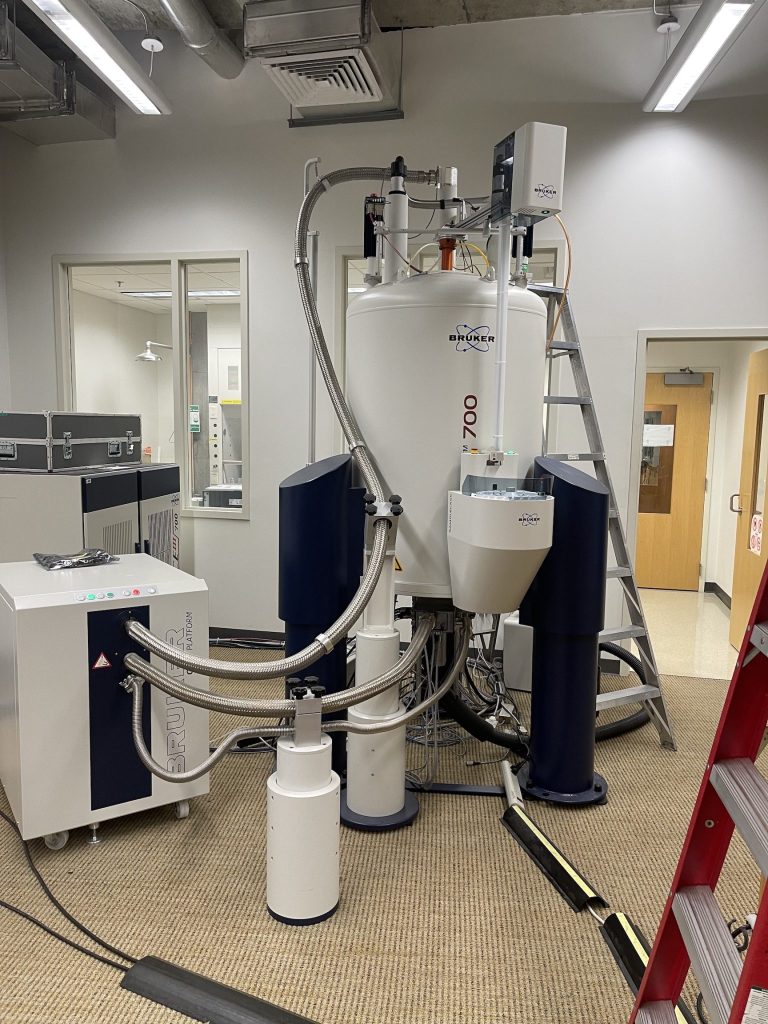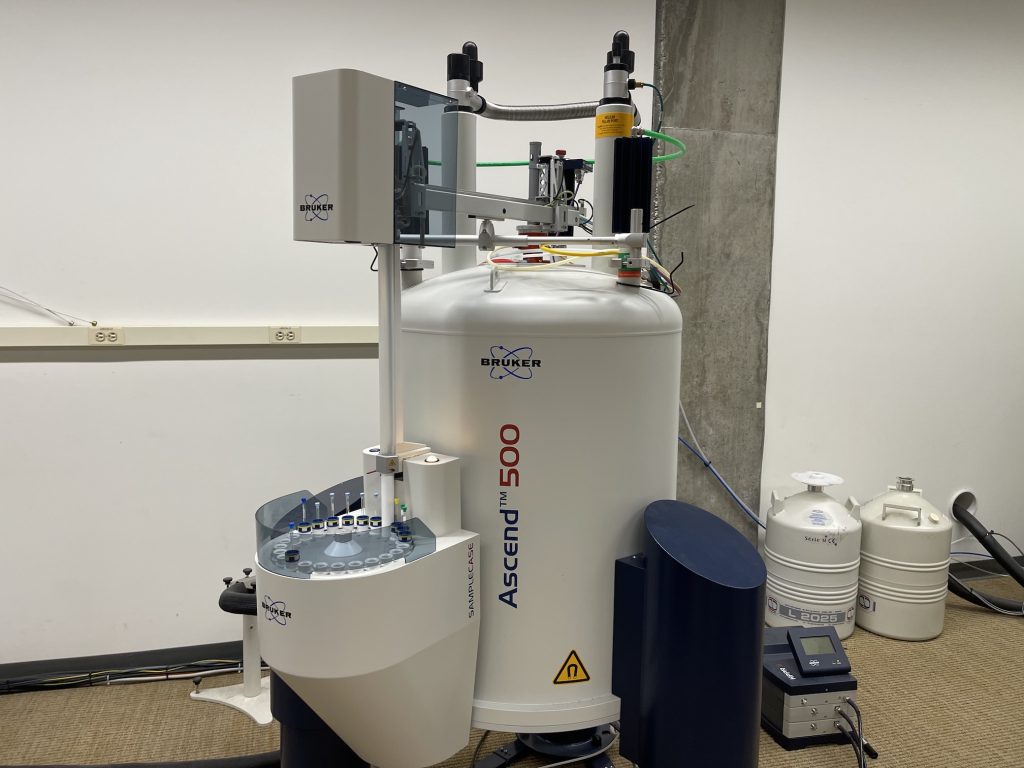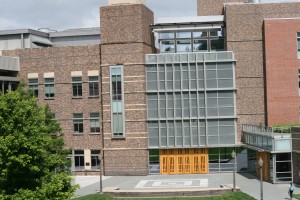Instruments







In addition, there are several Unix and Linux based workstations installed with several terabytes of hard drive space for off-line data processing and data storage. The resource is fully networked with the Medical Center and the University so that investigators can port data to their laboratories and even run the instruments remotely if they so choose. Firewalls are in place to protect the integrity of operation of the resource.
Our team
Dr. Ronald A. Venters is a faculty member in the Radiology Department and assumed the role of Director of the facility in December of 2020. He has over 35 years of experience in the structure determination and dynamics of large biological macromolecules and in NMR methods development. He is actively involved with training investigators in these areas and in assisting them with their projects. He also brings significant experience in computation and software management.
Mr. Donald Mika is the facility’s Engineer and Instrument Specialist. He is experienced in the design and repair of high-field NMR spectrometers through previous employment as a development engineer and field analyst for two major spectrometer producers. With Don, we are able to operate the NMR facility essentially in a self-sufficient maintenance and repair mode with only the occasional need to purchase replacement parts.
Dr. Benjamin G. Bobay is a faculty member in the Radiology Department and the Associate NMR Director of the facility and has over 20 years of experience in protein structure determination and protein:small ligand interactions. He dedicates half of his time to the Chemistry Department and the maintenance, operation, training, etc. of the FFSC NMR facility. He also brings experience in computational docking, molecular dynamics, and software management.



Dr. Leonard D. Spicer, the founding Director of the NMR Center, officially retired in December of 2020 and is now an Emeritus Professor in the Departments of Biochemistry and Radiology.
Dr. Anthony A Ribeiro officially retired in December of 2018.
Duke University NMR Center
The Duke Magnetic Resonance Spectroscopy Center (DMRSC) provides access to high field NMR instrumentation, training in the use of NMR methods, and expert consultation on advanced NMR applications. The Center serves as a research resource and shared instrument facility for research programs at Duke and in the Southeastern region. The Center was established with funding from the National Science Foundation, the Biomedical Research Support Shared Instrumentation Grants Program of the National Institutes of Health, the North Carolina Biotechnology Center of the State of North Carolina, and Duke University. Over the past several years the Center has invested over $3M in the purchase of additional equipment including new 500 MHz and 700 MHz Bruker spectrometers equipped for small molecule elucidation and macromolecular structure and dynamics studies respectively. Additionally, the Center has three cryogenically cooled probes that provide the highest sensitivity for biological research with enhanced 13C detection. These purchases and upgrades ensure the availability of the highest performing NMR instrumentation to all users and keep the resource on the cutting edge of functionality. General guidelines for allocation of time on the NMR spectrometers and the operating policy of the NMR Center are established and periodically reviewed by the DMRSC Steering Committee and by CoreResearch@Duke.
The NMR Spectroscopy Resource is physically located in ~5,000 sq. ft. of modern, custom designed space on the ground floor of the B-wing of the Levine Science Research Center and is operated as a shared resource. In addition to environmentally controlled instrument rooms, there are offices for the professional staff, a shared wet laboratory, and a conference room. The design of the resource is intended to provide maximum opportunity for investigators to communicate with one another and to share experiences and knowledge of value in studying the, often complex, systems associated with the projects being pursued. Having had the opportunity to design this suite specifically for the equipment and support personnel housed there, we were able to create an integrated shared resource environment that encourages maximum productivity.
Additionally, a Bruker Avance III 700MHz instrument, along with a Bruker NEO 500 MHz and an Agilent 400 MHz instrument are located in a specially designed 850 sq. ft. facility in the French Family Science Building adjacent to Levine Science Research Center. This location is particularly useful to users pursuing projects in Chemical Biology who are in the Chemistry Department that is located in the same building.











